Introduction
The smartphone market continues to evolve, and the release of the iPhone 16 Pro Max and the Samsung S25 Ultra represents a turning point in technological innovation and design philosophy. Both devices target premium customers who value performance, design, and advanced features. This report will delve into several key aspects such as design and build quality, display technology, performance metrics, camera systems, battery life, operating systems and user interface, connectivity, additional features, pricing, and overall value. The aim is to provide readers with a comprehensive comparison to help them make informed decisions.
Design and Build Quality
Starting with design, the iPhone 16 Pro Max adopts a minimalist yet robust design style that has evolved over several generations. The device features a grade 5 titanium frame combined with a ceramic shield front. This change not only improves durability but also reduces overall weight. The device measures 163.0 × 77.6 × 8.25 mm and weighs 227 grams, reflecting a perfect balance between sturdiness and comfort in hand.
On the other hand, the Samsung S25 Ultra boasts a design that emphasizes both aesthetics and functionality. The device employs a hybrid metal and glass construction with an Armor Aluminum frame for enhanced durability. The rear is engineered using a specialized matte finish that minimizes fingerprint smudges while providing an ergonomic grip. With dimensions of 162.8 x 77.6 x 8.2 mm and weighing 218 grams, the S25 Ultra offers a slightly larger build that appeals to users desiring a robust yet visually striking smartphone.
The build quality of both phones reflects modern engineering trends, with manufacturers focusing on premium materials and superior ergonomics. The iPhone 16 Pro Max continues Apple’s tradition of refined minimalism, while the Samsung S25 Ultra fuses innovative materials with a dynamic design. Both devices meet rigorous drop test standards and environmental certifications, ensuring they can withstand daily wear and tear.
| Features | 16 Pro Max | S25 Ultra |
|---|---|---|
| IP Ratings | IP68 Dust And water resistance | IP68 Dust And water resistance |
| Body | Glass front, glass back, grade 5 titanium | Gorilla® Armor 2, glass back, grade 5 titanium |
| Accessibility | MagSafe | S-Pen |
| Weight | 227 grams | 218 grams |
| Dimensions | 163.0 x 77.6 x 8.25 mm | 162.8 x 77.6 x 8.2 mm |
Display Technology
Display performance is one of the most critical aspects in any flagship device. The iPhone 16 Pro Max introduces a 6.9-inch Super Retina XDR OLED display that supports ProMotion technology with a variable refresh rate up to 120Hz. Apple has refined its color calibration and brightness levels to produce one of the most vibrant displays on the market. The display also boasts a high contrast ratio and HDR10 support, ensuring that users can view content with unmatched clarity even in challenging lighting conditions.
In comparison, the Samsung S25 Ultra features a slightly larger 6.9-inch Dynamic AMOLED 2X display with a QHD+ resolution. Samsung’s dedicated display engineers have pushed the envelope by integrating an adaptive refresh rate that ranges from 10Hz to 120Hz, providing optimal performance and battery efficiency. The S25 Ultra also supports HDR10+ and is known for its brilliant color reproduction, deep blacks, and high peak brightness levels. Both devices emphasize minimizing bezels and maximizing screen-to-body ratios, though each approaches this goal with their unique design philosophies.
IPhone 16 Pro Max’s color accuracy and motion fluidity remain industry leading, whereas the Samsung S25 Ultra caters to enthusiasts who demand exceptional clarity and a more vivid visual experience. Both displays have minimal color distortion and are engineered to reduce eye strain during prolonged usage.
| Features | 16 Pro Max | S25 Ultra |
|---|---|---|
| Inches | 6.9-inch | 6.9-inch |
| Display | Super Retina XDR OLED, Always-On, HDR10, and True Tone | Dynamic AMOLED 2X display with a QHD+ resolution |
| Brightness | 2,000 nits | 2600 nits |
| Refresh Rate | 120Hz | 120Hz |
| Colors | Black Titanium, White Titanium, Natural Titanium, Desert Titanium | Titanium Silver Blue, Titanium Black, Titanium White Silver and Titanium Grey |
Performance and Hardware
At the core of any flagship device is its performance, and both the iPhone 16 Pro Max and Samsung S25 Ultra deliver extraordinary capabilities. The iPhone 16 Pro Max is powered by Apple’s new A18 Bionic chip, which offers significant performance improvements over its predecessor. Built on a 3nm process, the A18 Bionic integrates an advanced 6-core CPU, a 5-core GPU, and a neural engine with 16-core machine learning acceleration. This setup provides not only superior processing power but also unmatched efficiency for tasks ranging from augmented reality applications to gaming.
Conversely, the Samsung S25 Ultra is equipped with the Snapdragon 8 Elite for Galaxy chipset, which has been optimized specifically for Samsung’s flagship devices. This SoC is designed to offer high performance in both CPU and GPU tasks, ensuring excellent gaming performance, multitasking capability, and power management. With 12GB of LPDDR5X RAM and internal storage options up to 1TB, the S25 Ultra emphasizes multitasking and efficient data handling, making it an ideal choice for power users.
IPhone 16 Pro Max demonstrates exceptional single-core performance, the Samsung S25 Ultra excels in multi-core and graphics-intensive applications. Both devices also feature advanced thermal management systems that maintain peak performance over extended periods, ensuring that users experience no degradation even during intensive usage sessions.
| Features | 16 Pro Max | S25 Ultra |
|---|---|---|
| GPU | 6-core graphics | Adreno 830 |
| CPU | Hexa-core | Octa-Core |
| Speed | (2x4.04 GHz + 4x2.X GHz) | 4.47GHz, 3.5GHz |
| NPU | 16-core Neural Engine which is capable of delivering 35 trillion operations per second | 40% faster than the previous generation's |
| RAM | 8GB | 12GB |
| Capacity | 256GB, 512GB or 1TB | 256GB, 512GB or 1TB |
| Chip | Apple A18 Pro (3 nm) | Qualcomm Snapdragon 8 Elite For Galaxy (3 nm) |
| Sensors | Face ID, LiDAR scanner, Barometer, High dynamic range gyro, High-g accelerometer, Proximity sensor, Dual ambient light sensors | Accelerometer, Barometer, Fingerprint Sensor, Gyro Sensor, Geomagnetic Sensor, Hall Sensor, Light Sensor, Proximity Sensor |
Camera Systems
The iPhone 16 Pro Max is outfitted with a triple-camera system that includes a 48MP primary sensor, an ultra-wide camera, and a telephoto lens with advanced optical zoom capabilities. Apple has incorporated enhanced low-light performance and computational photography algorithms that are integrated seamlessly with iOS 18. Features such as ProRAW and an upgraded Night mode highlight Apple’s commitment to delivering a professional-grade photography experience.
In parallel, the Samsung S25 Ultra presents a formidable camera array featuring a 200MP primary sensor, which is complemented by an ultra-wide lens, a periscope telephoto lens with 10x optical zoom, and a secondary telephoto sensor that enables up to 100x Space Zoom. Samsung’s camera software utilizes advanced AI-driven scene optimizations and real-time HDR processing, making it highly adaptable to a variety of shooting conditions. The S25 Ultra’s camera system is also capable of 8K video recording and features improved stabilization technology.
iPhone 16 Pro Max delivers more natural color tones and accurate skin tones, while the Samsung S25 Ultra is renowned for its detail retention and high-resolution sensor performance. Both devices also include a range of video recording enhancements, including cinematic modes and professional-grade editing tools integrated directly into their respective operating systems.
| Features | 16 Pro Max | S25 Ultra |
|---|---|---|
| Camera | 48MP Ultra Wide: 13mm, ƒ/2.2 aperture and 120° field of view, Hybrid Focus Pixels, super-high-resolution photos (48MP) | 200 MP, f/1.7, 24mm (wide), 1/1.3", 0.6µm, multi-directional PDAF, OIS 10 MP, f/2.4, 67mm |
| Telephoto | 12MP 5x, 120mm, ƒ/2.8 aperture and 20° field of view, 100% Focus Pixels, seven-element lens, 3D sensor-shift optical image stabilisation and autofocus, tetraprism design | 1/3.52", 1.12µm, PDAF, OIS, 3x optical zoom 50 MP, f/3.4, 111mm (periscope telephoto), 1/2.52", 0.7µm, PDAF, OIS, 5x optical zoom |
| Zoom | 5x optical zoom in, 2x optical zoom out; 10x optical zoom range Digital zoom up to 25x | 50MP telephoto lens (10x/5x), 10MP telephoto lens (3x), and AI‑enhanced 100x space zoom deliver distant, crisp, clear images. |
| Formats | HEIF, JPEG and DNG | DNG, JPEG, and HEIC |
| Dedicated Buttons | Yes | No |
| Video | Record Dolby Vision in 4K/1080p/720p with Fusion’s cinematic, action, spatial, ProRes, slow‑mo/time‑lapse, Log, Academy Color, sensor‑shift stabilisation, zoom, autofocus, plus advanced audio and mic features. | 8K@24/30fps, 4K@30/60/120fps, 1080p@30/60/120/240fps, 10-bit HDR, HDR10+, stereo sound rec., gyro-EIS |
Battery and Charging
Battery performance is another domain where both flagship devices have been optimized for endurance and quick charging. The iPhone 16 Pro Max reportedly offers all-day battery life with a measured capacity that supports up to 20 hours of video playback under standard testing conditions. Apple has continued its practice of optimizing hardware and software synergy, which results in efficient power management throughout the day. Additionally, the device supports fast charging via a USB-C port and introduces improvements to wireless charging speeds with MagSafe enhancements.
In contrast, the Samsung S25 Ultra comes with even larger battery offering 5000 mAh, which supports a similarly robust usage profile. Samsung has introduced an 80W wired fast charging capability which was expected to bring the device from 0 to 100% in roughly 35 minutes. Furthermore, the S25 Ultra includes improvements to wireless charging and reverse wireless charging, allowing it to serve as a power bank for other devices.
Comparative tests across both devices indicate that while the iPhone 16 Pro Max excels in software-level optimizations leading to real-world battery efficiency, the Samsung S25 Ultra benefits from a larger battery capacity that can better accommodate extended media consumption and gaming sessions. Both phones employ intelligent power management strategies, ensuring that they meet the demanding expectations of today’s users.
| Features | 16 Pro Max | S25 Ultra |
|---|---|---|
| Battery | 4685 mAh | 5,000 mAh |
| Video playback | 27 hours of video playback | 31 hours of video playback |
| Charging | 2hrs and 20mins | 59mins |
| Watts | 25W | 45W |
| Charger Type | USB-C 3.2 | USB-C 3.2 |
OS and Interface
Software and user interface design play crucial roles in determining the overall user experience. The iPhone 16 Pro Max runs on iOS 18, which has been lauded for its intuitive design, robust security features, and seamless integration with the broader Apple ecosystem. iOS 18 introduces new customization options, enhanced privacy controls, and refined widgets, all of which have been the focus of positive reviews from early adopters and professional analysts alike. The operating system’s smooth performance and continuity features, such as Handoff and Universal Control, further contribute to a cohesive experience across multiple Apple devices.
Meanwhile, the Samsung S25 Ultra operates on Android 15 layered with the One UI 7 interface. One UI 7 has been completely reimagined to streamline navigation and enhance accessibility. Samsung’s customizations include an improved notification center, dynamic theming options, and a battery-friendly design that adjusts to individual usage patterns. The software provides extensive multitasking capabilities and customization settings that cater to both casual users and power professionals, ensuring that every aspect of the interface is user-friendly.
While iOS 18 offers a highly secure and integrated ecosystem, Android 15 on the S25 Ultra provides greater flexibility in terms of personalization and third-party integration. Both operating systems continue to receive regular updates and security patches directly from their manufacturers, ensuring long-term reliability and performance.
| Features | 16 Pro Max | S25 Ultra |
|---|---|---|
| OS | IOS 18 upgradeable to newest iOS 18.4 | One UI 7 |
| Updates | Atleast 5 years of OS and security updates | 7 years of OS and security updates |
| Resolution | 2868 × 1320 | 3,120 x 1,440 |
| Density | 460 ppi | 505 ppi |
| Antutu Score | 1,774,620 | 2.265.528 |
| Dynamic Island | Yes | Yes |
Features and Connectivity
Beyond the primary features discussed, both the iPhone 16 Pro Max and Samsung S25 Ultra are equipped with a range of additional functionalities that cater to modern connectivity demands. The iPhone 16 Pro Max offers advanced 5G connectivity, Wi-Fi 7 support, and UWB (Ultra-Wideband) technology for precise spatial awareness. Enhanced Face ID technology ensures secure biometric authentication, while new satellite communication features allow emergency messaging in remote areas.
Similarly, the Samsung S25 Ultra supports the latest 5G standards, along with Wi-Fi 7 capabilities, enabling faster data transfer speeds and improved network stability. Samsung has integrated an in-display ultrasonic fingerprint sensor that provides quick and secure access to the device. Additional features include enhanced NFC for contactless payments, advanced Bluetooth 5.3 connectivity, and comprehensive IoT integration that enables the S25 Ultra to serve as a central control hub for smart home devices.
In terms of audio, both devices offer high-fidelity stereo speakers with spatial sound features, though the iPhone 16 Pro Max leans on its integration with Apple’s ecosystem to provide seamless connectivity with AirPods and HomePod devices. Conversely, the S25 Ultra offers enhanced sound customization options via its proprietary sound engine, appealing to audiophiles who desire a more tailored audio experience. Both devices are committed to delivering uninterrupted connectivity and performance, making them ideal for demanding communication and entertainment scenarios.
| Features | 16 Pro Max | S25 Ultra |
|---|---|---|
| UWB | Yes | Yes |
| Location | GPS, GLONASS, Galileo, QZSS, BeiDou and NavIC | GPS, Glonass, Beidou, Galileo, QZSS |
| Specs | MagSafe | S-pen |
| Network | 5G (sub‑6GHz) with Gigabit LTE | 4G, LTE, and 5G |
| WiFi | Wi‑Fi 7 (802.11be) | Wi‑Fi 7 (802.11a) |
| Bluetooth | v5.3 | v5.4 |
| NFC | Yes | Yes |
| SIM | Dual SIM (nano-SIM and eSIM) | Dual SIM (nano-SIM and eSIM) |
Price, and Sales Rate
Price is a key factor in the decision-making process for consumers. iPhone 16 Pro Max is positioned as a premium device starting at USD 1,299 for the base configuration with 256GB of storage, with higher-end models reaching up to USD 1,799 for configurations that include extended storage and additional features. Apple’s pricing strategy has remained consistent with its premium branding, ensuring that the device not only reflects top-tier technology but also the prestige associated with the Apple ecosystem.
The Samsung S25 Ultra, positioned slightly below the absolute premium tier yet still firmly in the flagship category, is available starting at approximately USD 1,199 for the base model with 256GB of storage. Higher configurations, particularly those featuring maximum storage options and exclusive bundled accessories, have been priced to compete aggressively with Apple’s offerings. Industry analysts note that Samsung’s pricing strategy reflects its commitment to offering high performance at a competitive price point while still maintaining a premium build quality and feature set.
Both devices have secured prominent positions in the global smartphone market. Pre-orders for the iPhone 16 Pro Max have reportedly exceeded initial expectations, while the Samsung S25 Ultra has seen a rapid adoption rate in regions that favor Android’s flexibility. Market data and sales figures confirmed that both models are expected to dominate the high-end smartphone segment well into 2025.
| Features | 16 Pro Max | S25 Ultra |
|---|---|---|
| Price | ~$1,199.00 to ~$1,599.00 | ~$1,099.99 to ~$1,459.99 |
| Trade In | Yes | Yes |
| Released Date | September 20, 2024 | February 7, 2025 |
| Market Position | 23% | Undefined |
Conclusion
The iPhone 16 Pro Max appeals to users who prize design minimalism, a tightly integrated ecosystem, and industry-leading performance delivered by the A18 pro Bionic chip and iOS 18. Its titanium build and refined camera system underscore Apple’s commitment to quality and innovation. Conversely, the Samsung S25 Ultra distinguishes itself with a vibrant, high-resolution display, an extremely capable Qualcomm Snapdragon 8 Elite For Galaxy (3 nm) processor, and an advanced camera system that offers versatility and high-resolution imaging. With robust battery performance, state-of-the-art connectivity features, and a more personalized Android experience via One UI 7, the S25 Ultra attracts users who appreciate adaptability and cutting-edge display technology.
Ultimately, the choice between the two will depend on the user’s ecosystem preference, with Apple enthusiasts drawn to the iPhone 16 Pro Max’s cohesiveness and refined user interface, and Samsung users attracted to the expansive feature set and customizability of the S25 Ultra. Both devices reinforce the notion that the flagship smartphone market continues to push boundaries, delivering ever more advanced technology in every category.
In conclusion, whether one chooses the iPhone 16 Pro Max for its integrated approach and robust performance or the Samsung S25 Ultra for its feature-rich adaptability and superior display technology, the advancements seen in these devices set new benchmarks for excellence in mobile communication and entertainment. Both brands have delivered products that not only meet but exceed user expectations in today’s fast-paced technological landscape.
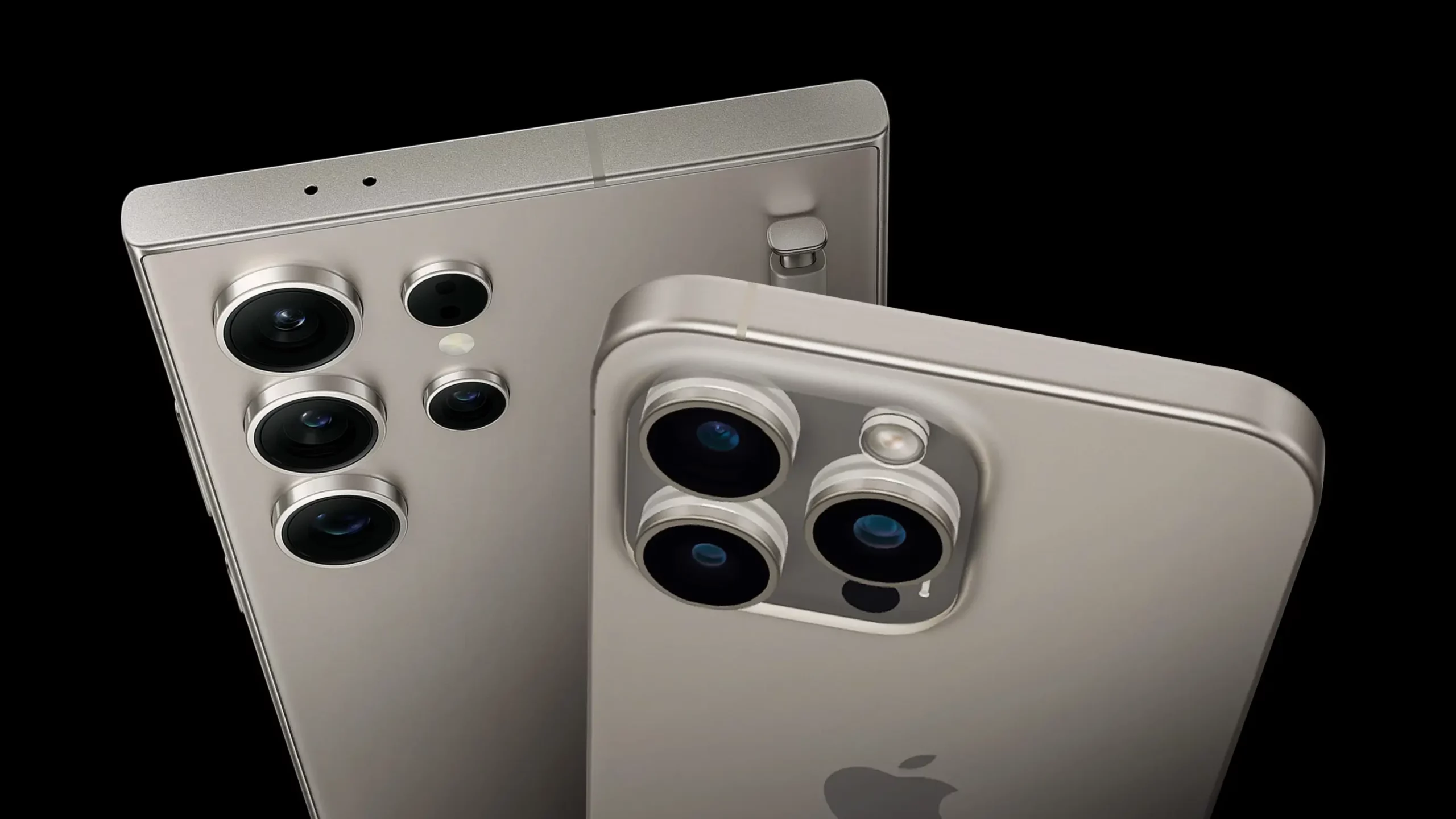
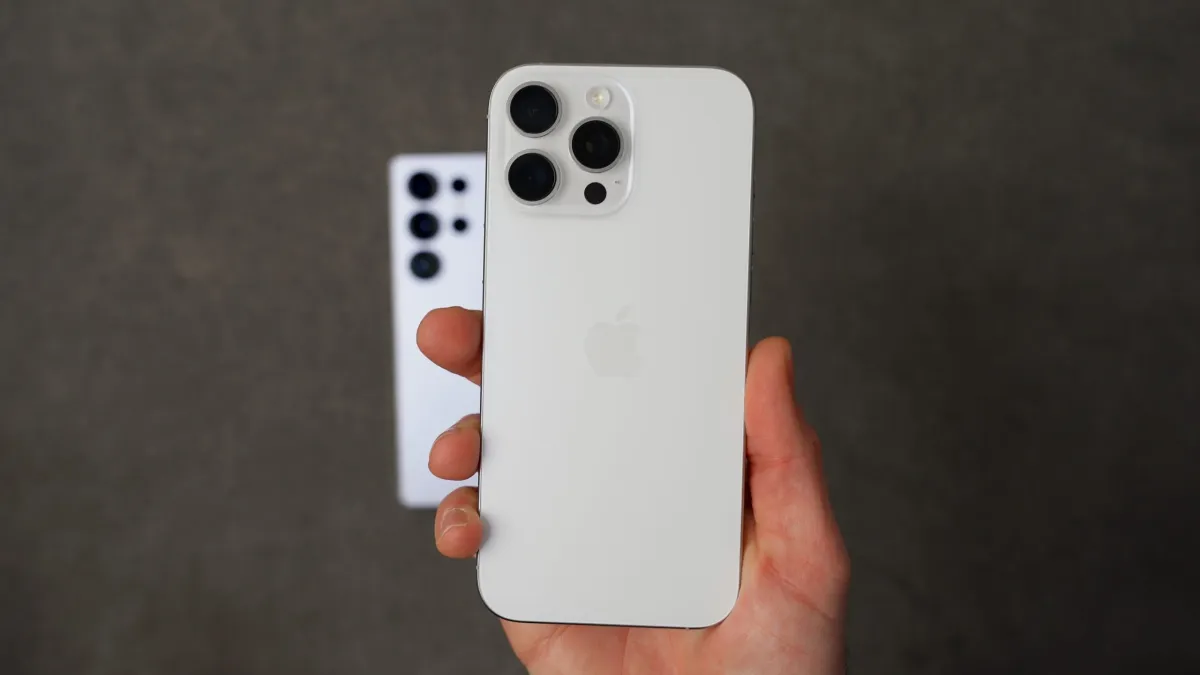
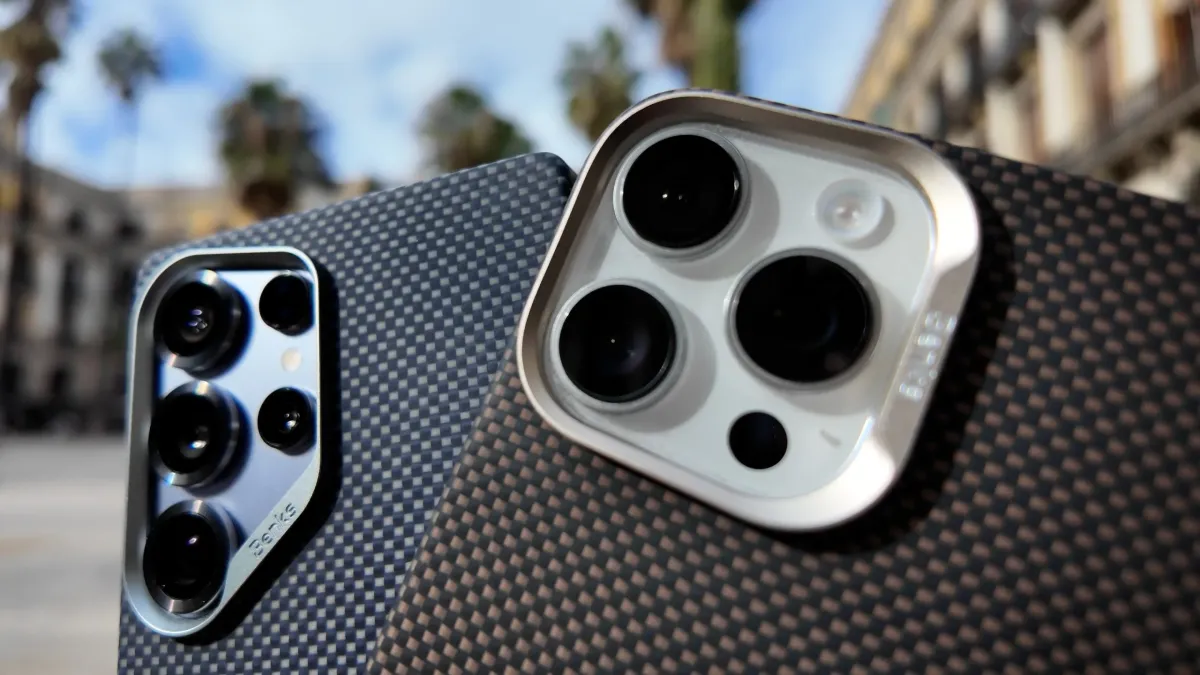
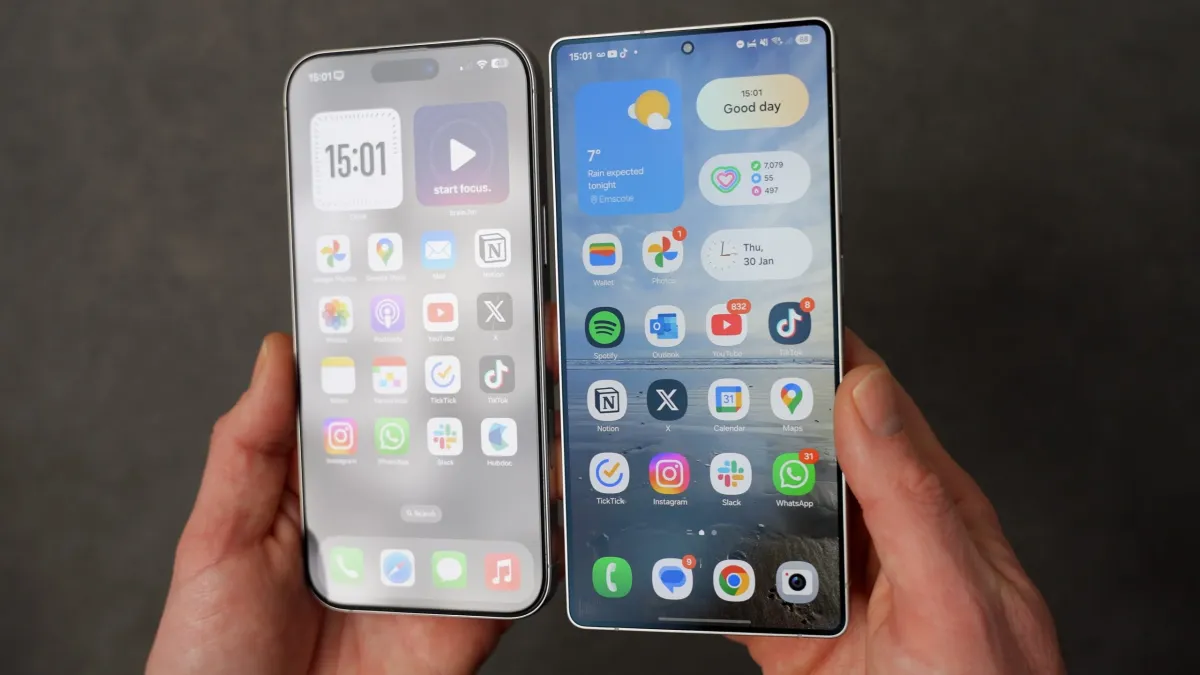
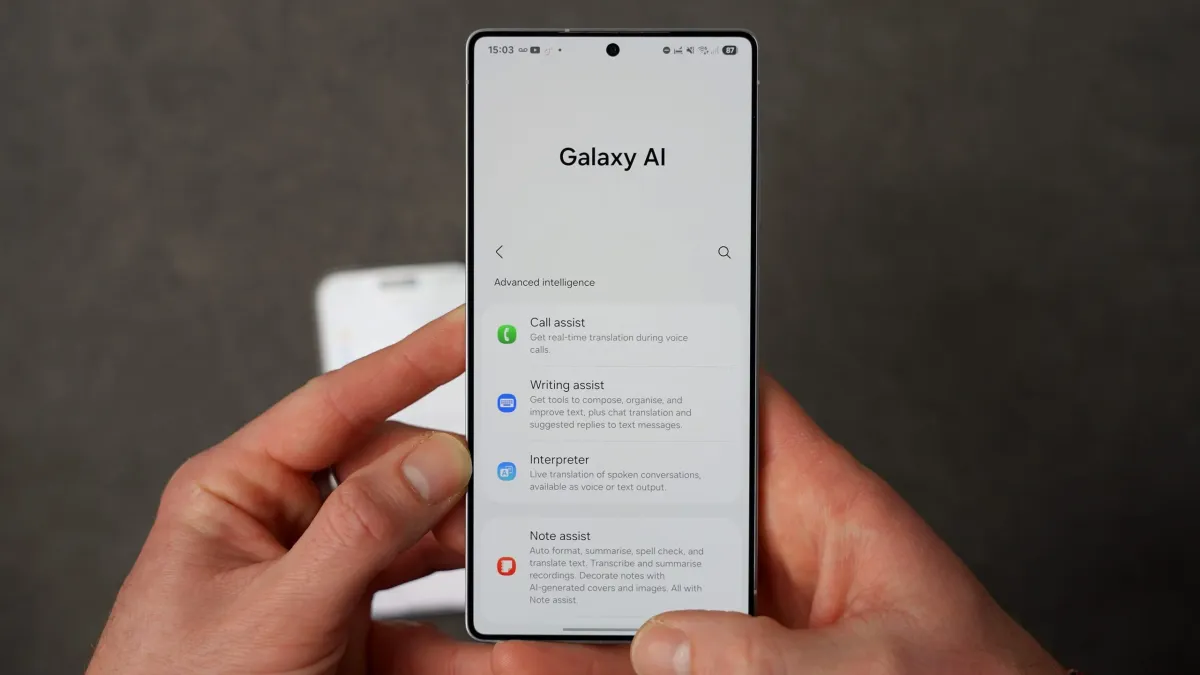
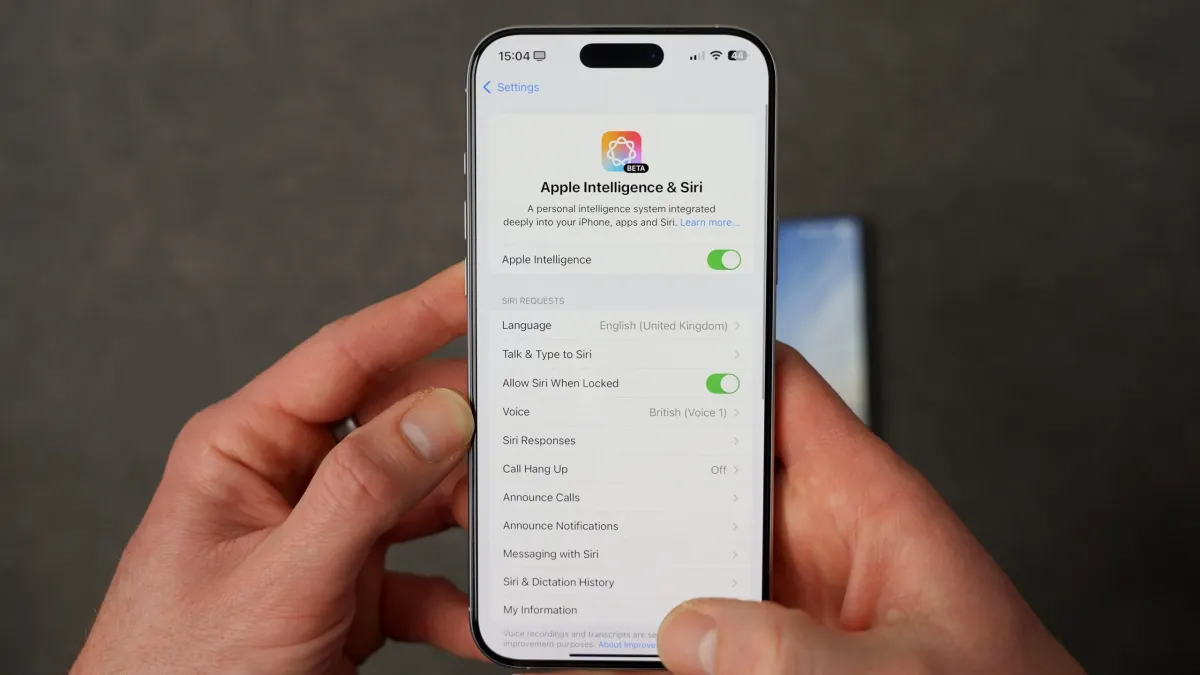
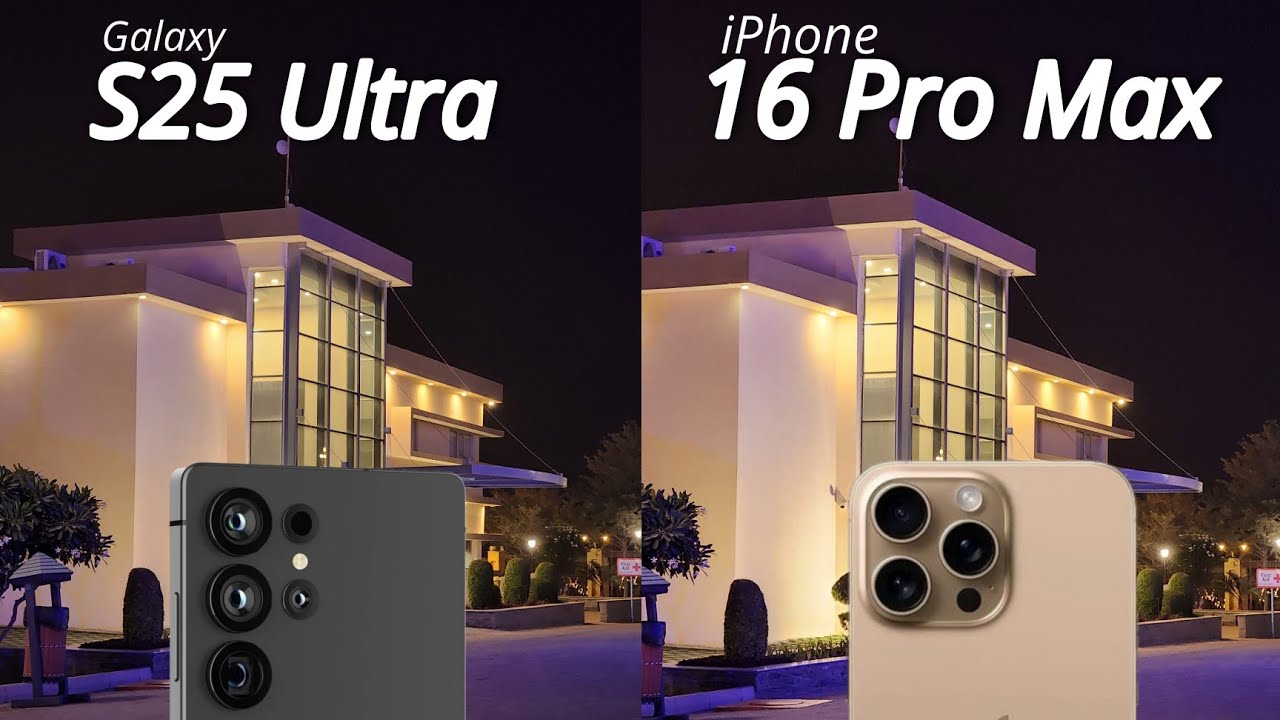
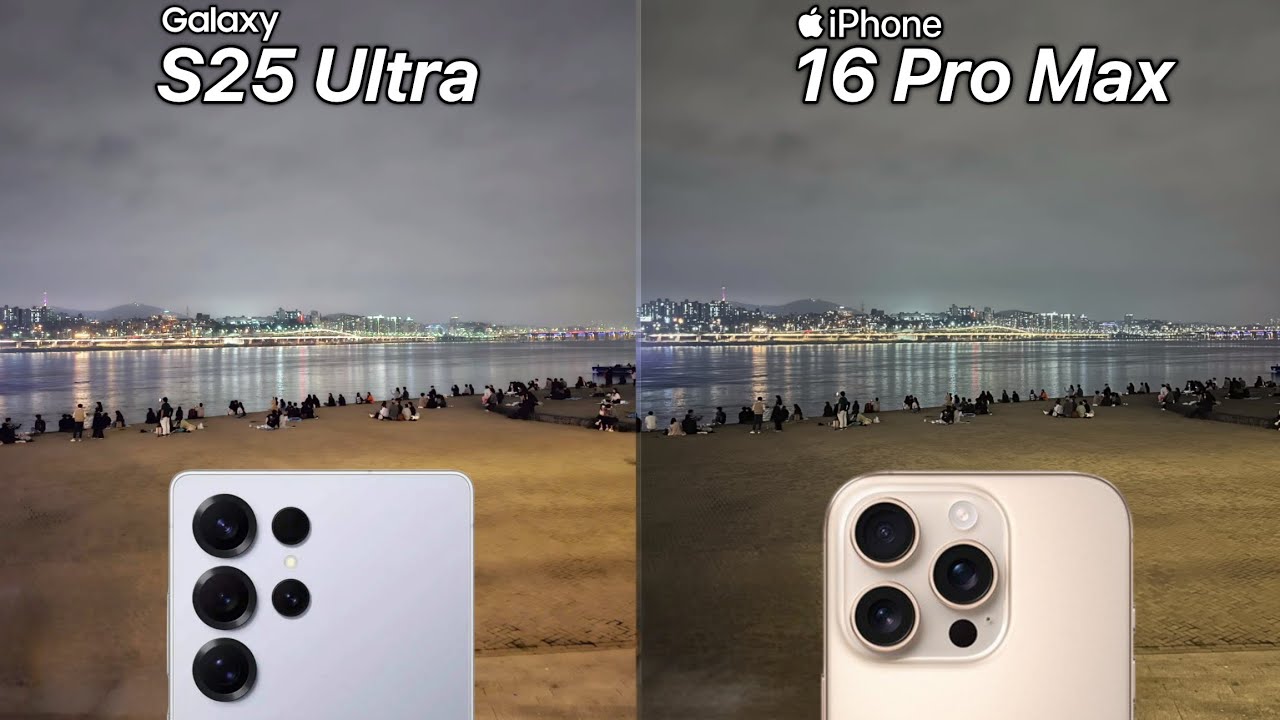
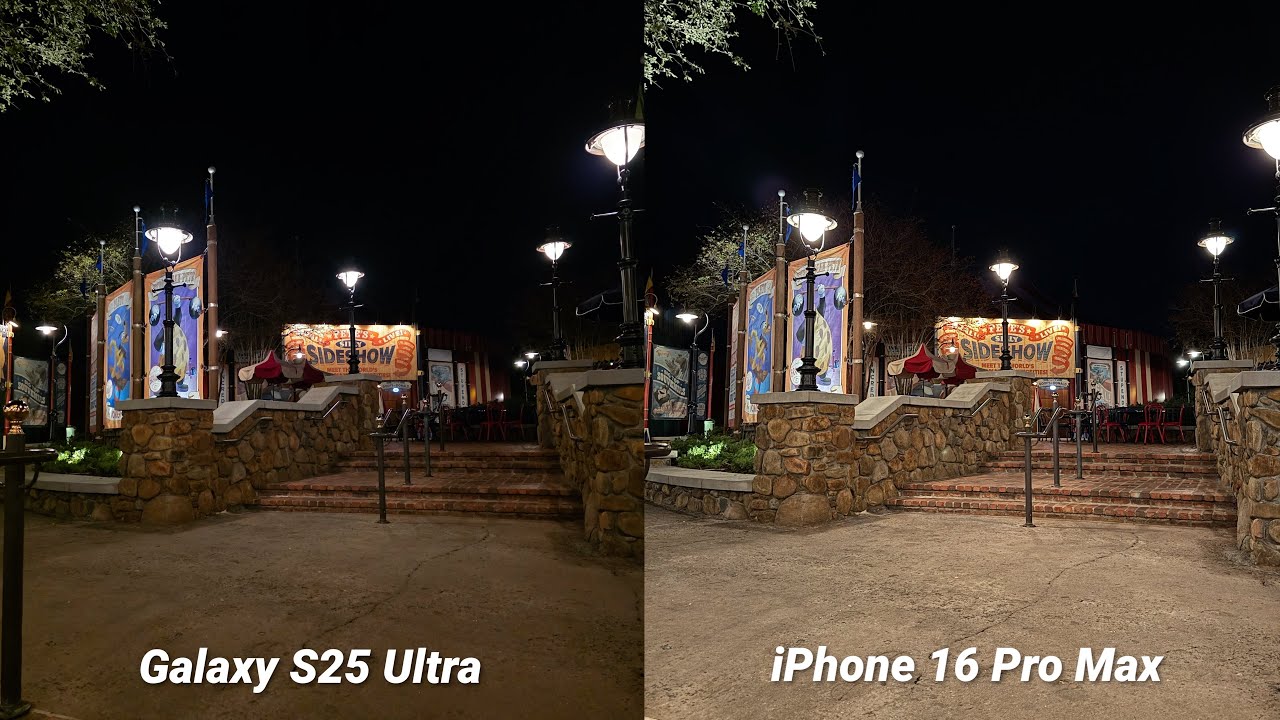
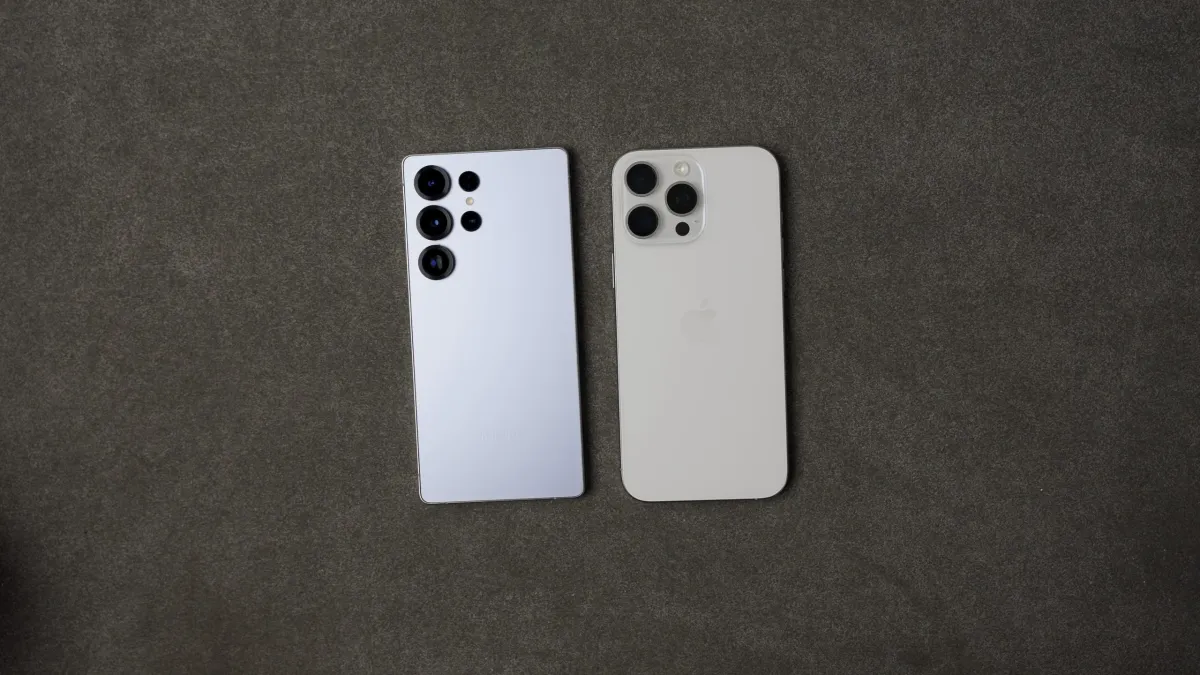
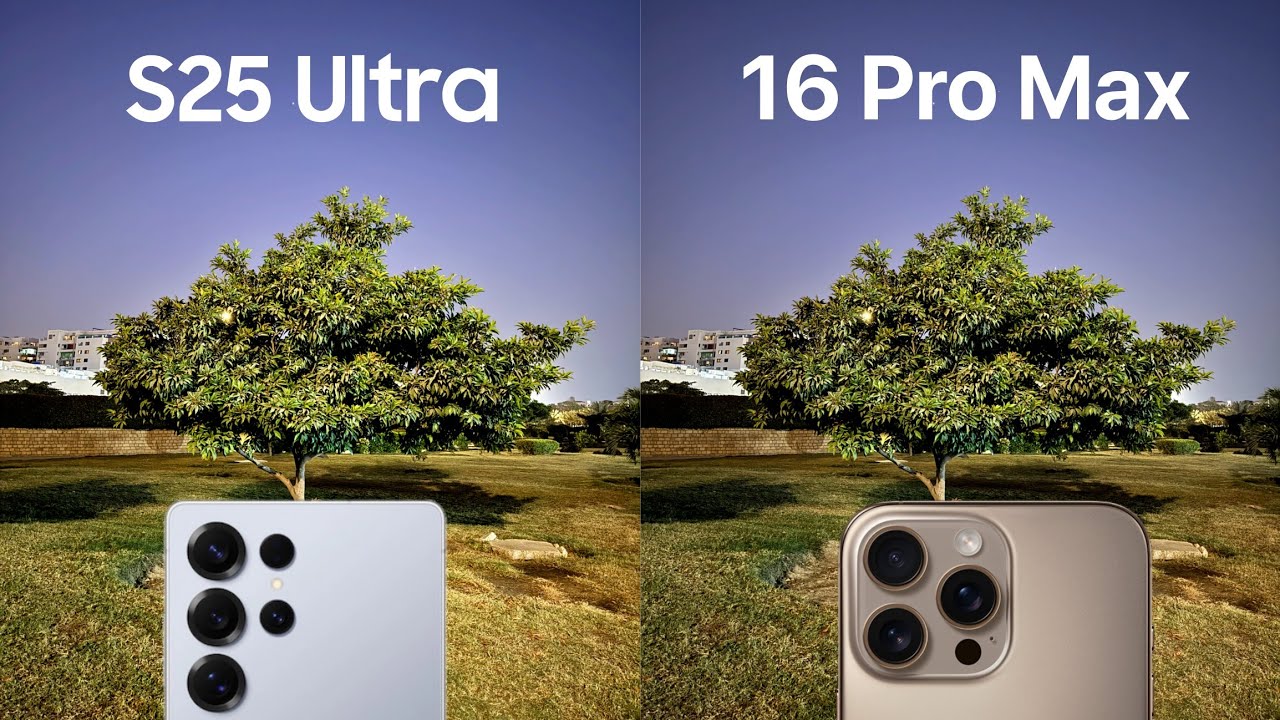
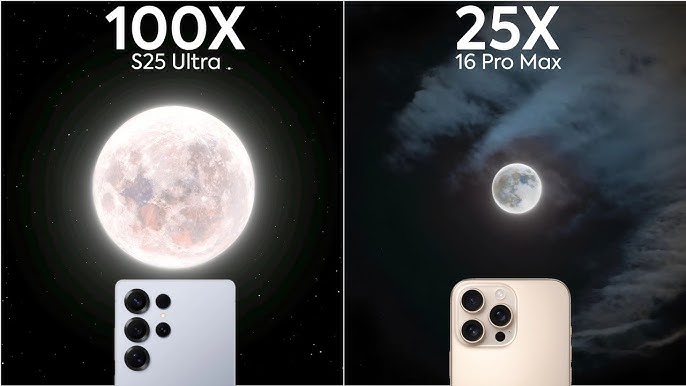
Comments